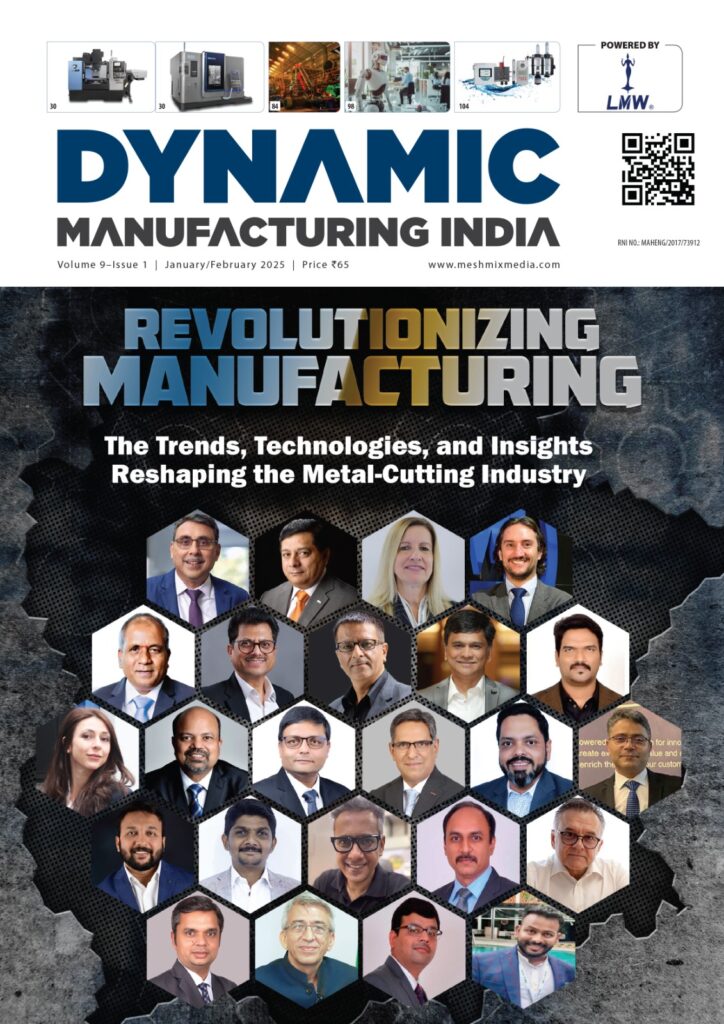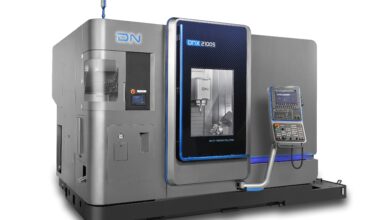Krebs & Riedel Abrasives India Charts the Future of Grinding Technology
Amoghanandan. KV, Head of India operations, Krebs & Riedel Abrasives India pvt Ltd shares insights on advancements, sustainability, and overcoming challenges in the grinding industry.

Introduction and latest developments from Krebs & Riedel
We at Krebs & Riedel develop continuously new grinding technology and offer worldwide technical support to optimize the grinding process at your side with our application engineering team. We are looking forward to expanding business in India and to deliver precision grinding wheels for nearly all types of applications. Whether it’s cylindrical grinding, surface grinding, creep feed grinding, profile grinding, id- and od grinding, roll grinding, cutting, rough grinding, tool grinding, double disc surface grinding, centerless grinding, or gear grinding.
Double disc surface grinding with planetary kinematics – New fine grit specifications

In double disc surface grinding with planetary kinematics, we are specialized in machining super-hard materials such as Al2O3, glass and saphir, ceramics (SiC, SiN), mixed ceramics and tungsten carbide with vitrified-bonded diamond and steel and metal alloys with vitrified CBN. We have developed new fine grit specifications for grinding large-area surfaces in the nanometer range with high removal rates. We offer fully customized systems solutions consisting of grinding wheels for double disc surface grinding and a matching sharpening technology
A leading manufacturer in gear grinding

As a leading manufacturer in gear grinding, we are proud to produce all different types of gear grinding wheels for all industry sectors. Our solutions help to increase the efficiency and lifespan of gears since the gears are being now polished or fine grinded. Our gear grinding products are profile grinding wheels, generating grinding wheels, generating grinding wheels with polishing or fine-grinding zone, CBN vitrified grinding worms, baby grinding worms for grinding of interfering contours and bevel gear grinding cups. We are looking to expand business with the reneweable energy sector, aerospace, automotive, trucks, agriculture and two- and three-wheeler manufacturers.
Silicon carbide grinding wheels – First class grinding quality

We offer now silicon carbide grinding wheels in vitrified bond from grit size 30 up to 500. Polishing wheels in polyurethane bond from grit size 180 up to 1500 for first class surface qualities and superhard materials. Silicon carbide is an extremely versatile grinding material with a very wide range of applications. This includes grinding high-alloy steels, cast iron, aluminum, brass, copper, bronze, mineral materials (ceramic/granite, etc.), hard metals and extremely hard wear layers. Combined with the material’s excellent high-temperature strength and thermal shock resistance, as well as its impressive mechanical properties, silicon carbide is one of the most versatile refractory ceramics in the world.
Proteus Abrasives – Good quality meets good price

With our new brand Proteus Abrasives we offer now precision grinding wheels where a good quality meets a good price. Designed for those who seek exceptional value without compromise, our range of precision-engineered grinding wheels delivers reliability at a price that suits your bottom line. With Proteus Abrasives, experience cost-effective solutions without sacrificing the excellence you expect.
www.proteus-abrasives.com
Other new products:
- Electroplated grinding wheels
- Metal Bond grinding wheels
- Resin Bond grinding wheels
- Hybrid Bond grinding wheels
- Diamond Rotary Dressers
- Form Rolls
- Diamond stationary dressers
- Mobile dressing spindles
1 ) What recent advancements in Grinding technology have had the most transformative impact on efficiency and precision?
The advancement in grinding technology have undeniably transformed the landscape of manufacturing, emphasizing greater efficiency and precision. From Advanced CNC machines by reducing human errors and improving consistency.
Superabrasive wheels which provide superior hardness and wear resistance. They are capable of grinding complex materials like ceramic and high strength alloys more effectively, resulting in reduced cycle time and lower operational costs.
Artificial intelligence (AI) and machine learning algorithms are beginning to play a crucial role in optimizing grinding processes. By analysing historical data, these technologies can predict optimal grinding parameters and alert operators to potential issues before they arise.
2 ) How is the industry adapting to sustainable manufacturing practices, and what specific initiatives are helping to reduce environmental impact?
The industry is increasingly adapting to sustainable manufacturing practices through various initiatives aimed at minimising environmental impacts like.
Energy efficiency : Many manufacturers are adopting energy efficient technologies like LED lighting, high-efficiency motors and automation systems that optimize energy use.
Renewable Energy: Companies are transitioning to renewable energy sources, such as solar and wind, to power their operations.
Sustainable Materials: The use of sustainable materials, including recycled plastics, organic textiles, and biodegradable substances, is on the rise. Companies are opting for suppliers that provide eco-friendly materials.
Water Conservation: Efforts to reduce water usage and improve water quality include implementing closed-loop systems, recycling water in processes, and using less water-intensive materials.
Green Certifications: Many industries are pursuing green certifications like ISO 14001 (environmental management), demonstrating commitment to sustainable practices.
3 ) What trends are driving the current demand for grinding solutions, and how do you foresee the industry adapting to these trends?
The current demand for grinding solutions is influenced by several key trends:
Automation and Smart Manufacturing: The increasing adoption of automation in manufacturing processes is driving the need for advanced grinding solutions that integrate robotics and smart technologies. This allows for higher precision, reduced human error, and improved efficiency.
Customization and Flexibility: Manufacturers are looking for more customized and flexible grinding solutions to meet specific product requirements. This trend is pushing companies to develop machines that can easily adjust to different materials and product designs.
Sustainability and Energy Efficiency: There is a growing focus on sustainable manufacturing practices. Grinding solutions that reduce energy consumption, minimize waste, and utilize environmentally friendly materials are becoming more popular.
5) What do you view as the most significant challenges facing the metal-cutting industry today, and what steps is your organization taking to stay competitive?
The grinding industry faces several significant challenges today, including:
Technological Advancements: Rapid changes in technology require constant investment in new machinery and processes. We are Investing in automated and smart technologies to enhance efficiency and reduce labour dependency.
Labor Shortages: Difficulty in finding skilled workers impacts production and quality. We are Focusing on employee training and development programs to attract and retain skilled workers.
Supply Chain Disruptions: Global supply chain issues can affect the availability of materials and parts. We are diversifying supply chains and building strong relationships with suppliers to mitigate disruptions

E copy of the magazine – https://www.machineinsider.com/dynamic-manufacturing-india-jan-feb-2025-edition/


